Tattoos And Psoriasis: Risks, Considerations, & Treatment Tips
Discover everything you need to know about getting inked with a chronic skin issue.

Image: iStock
The topic of tattoos and psoriasis requires careful thought. While most people get a tattoo without thinking much, people with psoriasis must think twice before doing so. Psoriasis is a chronic skin condition characterized by thick, scaly patches on the skin. The smallest cut, insect bite, or wound can trigger a flare-up instantly. So, if you have been thinking about getting inked and want to learn how this common inflammatory skin disease may affect your body art, you have come to the correct place. In this article, we will look deep into whether you can get inked over your psoriasis, the potential risks of tattooing, precautions to keep in mind, and more. Scroll down to read more!
In This Article
Can You Tattoo Over Psoriasis Plaques?
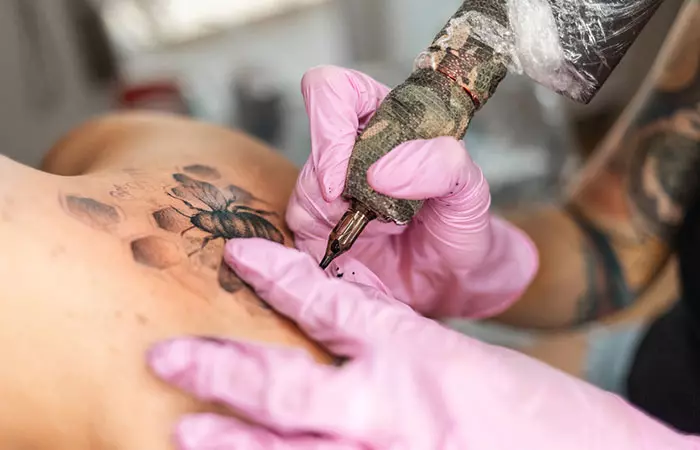
Tattooing over psoriasis may present numerous challenges due to the skin’s unpredictable nature. Psoriasis is a chronic skin disease where the immune system becomes hyperactive, causing the skin cells to increase rapidly. This immune response results in red patches, silvery-white scales, and itchy skin (1). Tattooing requires depositing tattoo inks into the deeper layers of skin. This may aggravate the flare-ups and affect the tattoo’s overall appearance. Though it is possible to get tattoos with psoriasis, one must consider the tattoo’s placement and the risks associated with it before getting one.
Imogen Jones, a YouTuber, talked about her experience with getting inked while dealing with psoriasis. She said, “Today I started with very small psoriasis on one of my tattoos (i).” She further shared, “There is a common misconception that if you have psoriasis or eczema then you cannot get a tattoo, that is not true.”
While tattooing on psoriasis-affected skin is possible, it comes with an increased risk of flare-ups. Check out the next section to know more.
Key Takeaways
- Psoriasis is an autoimmune skin condition characterized by silvery-white patches and red scales on the body.
- Tattooing on psoriasis-affected skin may increase the risk of allergic response, skin infection, and uneven healing.
- Choosing the right tattoo location and strictly following the aftercare instructions given by your tattoo artist may decrease potential tattooing risks.
- Your dermatologist may prescribe ointments or oral medications to manage psoriatic symptoms after getting inked.
Can Getting A Tattoo Cause Psoriasis Flare-Ups?
In short, yes. Tattoos may trigger psoriasis flare-ups due to the cutaneous trauma caused during the whole tattooing procedure. The immune system responds by exacerbating the existing patches and inducing new scaly psoriasis plaques. In fact, a study conducted on 90 Finnish psoriasis patients found that 30% reported acute flare-ups within the initial weeks of getting tattooed (2). Hence, consult the concerned healthcare professionals before getting inked to reduce the potential risks of tattoos.
It is important to understand the potential risks that come with tattooing on psoriatic skin. Find out more in the next section.
Risks Of Getting A Tattoo If You Have Psoriasis

Getting a tattoo with psoriasis may pose the following risks to one’s skin health:
- May Trigger Koebner Phenomenon: Also known as the isomorphic response, it is the development of skin lesions on previously unaffected skin in response to skin trauma or skin injury (2).
- May Cause Uneven Healing: The tattooed skin area with psoriasis may heal unevenly and affect the tattoo’s appearance.
- May Increase Infection Risk: Psoriatic skin is characterized by a compromised skin barrier that may increase the risk of developing fungal and bacterial infections (1), (3).
- May Trigger Allergic Reactions: Psoriasis-prone skin may react negatively to the pigments present in tattoo ink that may trigger allergic responses (4).
- Psychological Effects: It’s important to consider the potential psychological effects of getting a tattoo for psoriasis. This decision might cause anxiety or stress for some people, particularly if they are concerned about the impact on affected areas or the potential for flare-ups afterward. Taking the time to think about how it might affect your mental well-being before proceeding is important.
Apart from the above-mentioned risks, be prepared for the possibility of refusal from the tattoo artist. This may be due to a lack of experience or state laws preventing reputable studios from inking on skin conditions, especially psoriatic lesions.
 Did You Know?
Did You Know?Understanding the risks involved with tattooing psoriatic skin will help you make an informed decision. But taking some precautionary measures before getting inked can reduce the risk of developing these issues in the first place. Check out the next section to know more.
Precautions To Keep In Mind Before Getting A Tattoo
To minimize the potential risks, you can take certain precautions before getting inked. Start by consulting a dermatologist to assess your skin health. Additionally, if you are feeling anxious or unsure about getting a tattoo with psoriasis, discuss your concerns with a psychologist or counselor who can help address any emotional challenges and give you clarity before making the decision. Taking care of your mental well-being is important as part of the overall preparation.
Choose tattoo locations away from active psoriatic patches and flare-ups. Ensure that optimal hygiene protocol is practiced during the tattoo process to decrease skin infection risk. Lastly, strictly adhere to the aftercare instructions for optimal healing of the tattooed skin and management of psoriasis.
Sena, a blogger, shared her tattoo and psoriasis journey on her blog post. She wrote, “My recommendation to people with psoriasis who want tattoos is…Don’t get tatted when your psoriasis is inflamed badly. This will cause the psoriasis to get worse and possibly ruin your tattoo (waste of money). I decided it was safe for me to get tatted because my psoriasis is at a minimum right now (ii).”
 Quick Tip
Quick TipIn some cases, following the proper precautionary measures may still leave you with a psoriasis flare-up after getting tattooed. But fret not. Scroll down to the next section for some simple remedies you can follow.
How To Treat Psoriasis Flare-Ups After Getting A Tattoo
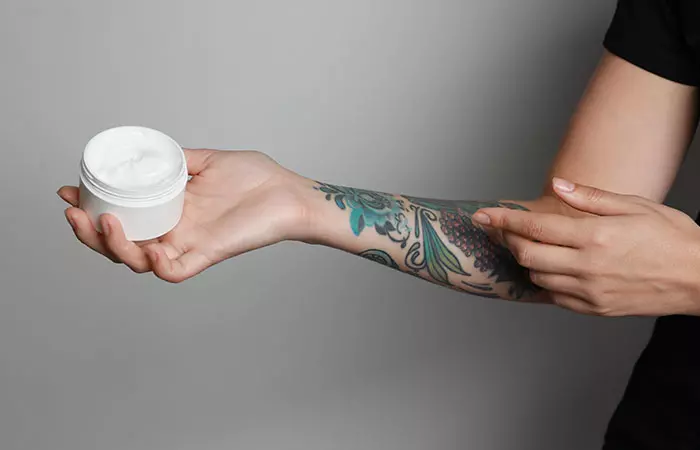
Here are the following ways to alleviate your psoriatic flare-ups and improve your overall skin condition:
- Use Topical Treatments: Apply a thin layer of prescribed or over-the-counter cortisone ointments and creams to soothe the inflamed skin and itching.
- Try Light Therapy: The treatment involves exposing the affected skin to artificial sunlight in an attempt to combat the condition.
- Apply A Moisturizer: Use fragrance-free and alcohol-free moisturizers to prevent excessive dryness, itchiness, and redness.
- Consult A Dermatologist: Seek professional help for proper management of psoriasis and your tattoos.
- Take Oral Medications: You may use doctor-recommended oral retinoids and other medications to also help control the inflammatory process and flare-ups.
The topic of tattoos and psoriasis demands proactive measures and careful considerations. Tattooing with psoriasis may risk triggering flare-ups and aggravating your condition. In some cases, side effects of tattoos, like skin irritation or infections, can also emerge. However, strategic tattoo placement, proper hygiene protocols, and personalized tattoo aftercare can help in preventing tattoo-related complications. Sometimes following the proper precautions may still result in flare-ups after getting a tattoo. In that case, consult your doctor and get the required medications to help manage your symptoms properly.
Frequently Asked Questions
Should I inform my tattoo artist about my psoriasis?
Yes, informing your tattoo artist about your psoriasis beforehand can help minimize potential tattoo complications, such as flare-ups, uneven healing, and skin allergies. This information may also help them craft a customized aftercare plan to ensure a properly healing tattoo.
What should a person with psoriasis consider when choosing a professional tattoo parlor or artist?
Vist the tattoo studio and talk to the tattoo artist. Ensure that they follow proper hygiene protocol and sterilization processes such as using gloves during the tattooing procedure, inks one time from an individual cup, and inks with no recalls on them.
Are there specific aftercare steps for tattoos on psoriasis-affected skin?
You may follow the aftercare steps suggested by your dermatologist to ensure optimal healing. Always opt for a psoriasis-friendly cream or ointment to hydrate the affected area and soothe skin irritation and inflammation. Also, avoid swimming and sun exposure for a few weeks after tattooing to avoid infecting the tattoo and slowing down the healing process.
What areas are safest for tattoos if I have psoriasis?
This varies from individual to individual. However, people with psoriasis should choose an area with no skin lesions and psoriasis plaques.
Can psoriasis medications interfere with the tattoo healing process?
Research suggests that the immunosuppressive therapy prescribed for treating psoriasis may weaken the immune system. This may increase the risk of infection during the aftercare process (3). Hence, consult a dermatologist to ensure that it is safe to get a tattoo with psoriasis.
Illustration: Tattoos And Psoriasis: Risks, Considerations, & Treatment Tips
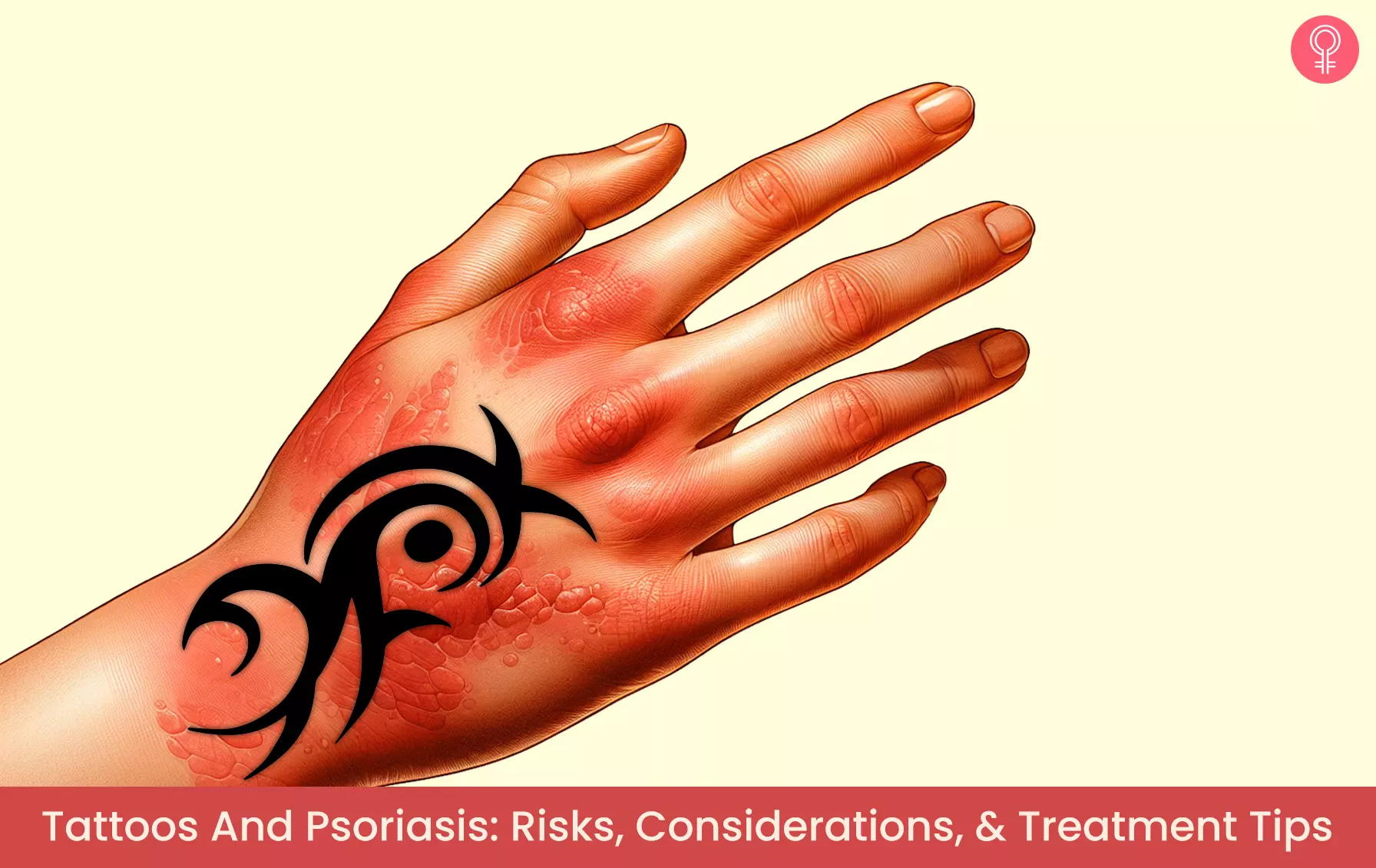
Image: Dall·E/StyleCraze Design Team
If you want to get inked but do not know how it will affect your psoriasis, then look no further. Check out this video for interesting information about this topic to help you make an informed decision.
Personal Experience: Source
StyleCraze's articles are interwoven with authentic personal narratives that provide depth and resonance to our content. Below are the sources of the personal accounts referenced in this article.
(i). Psoriasis and Tattooshttps://youtu.be/ys4FUjfvqN8?si=qwPJyn2cbZBR2Yux
(ii). Psoriasis And Tattoos Followup
References
Articles on StyleCraze are backed by verified information from peer-reviewed and academic research papers, reputed organizations, research institutions, and medical associations to ensure accuracy and relevance. Read our editorial policy to learn more.
- Psoriasis
https://www.ncbi.nlm.nih.gov/books/NBK448194/ - Tattooing and psoriasis: demographics, motivations and attitudes, complications, and impact on body image in a series of 90 Finnish patients
https://pubmed.ncbi.nlm.nih.gov/28632882/ - Tattooing in Psoriasis: A Questionnaire-Based Analysis of 150 Patients
https://www.ncbi.nlm.nih.gov/pmc/articles/PMC8995150/ - Identification of pigments related to allergic tattoo reactions in 104 human skin biopsies
https://onlinelibrary.wiley.com/doi/full/10.1111/cod.13423
Read full bio of Terri L Watts
Read full bio of Pahul Nanra
Read full bio of Eshna Das
Read full bio of Manjari Uppal







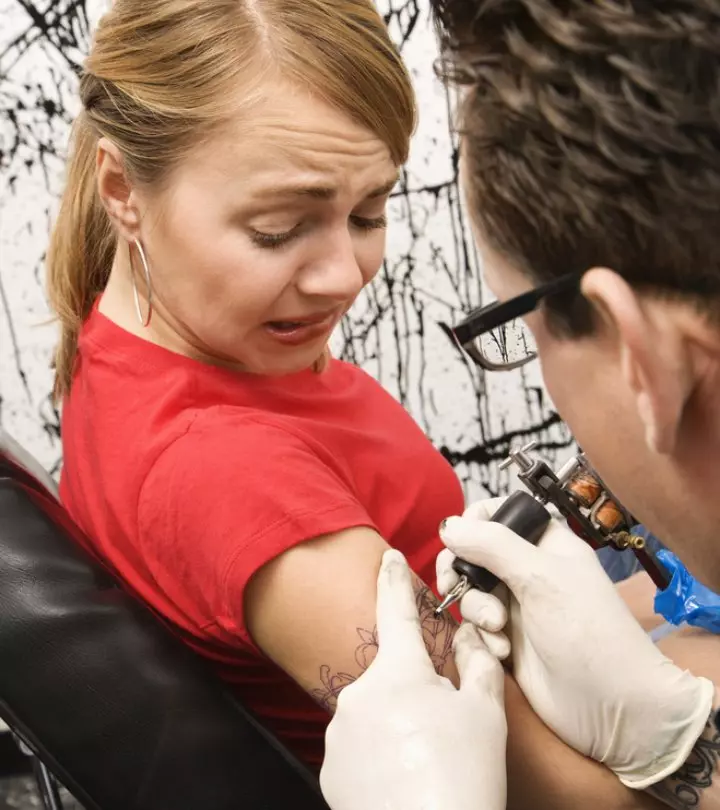


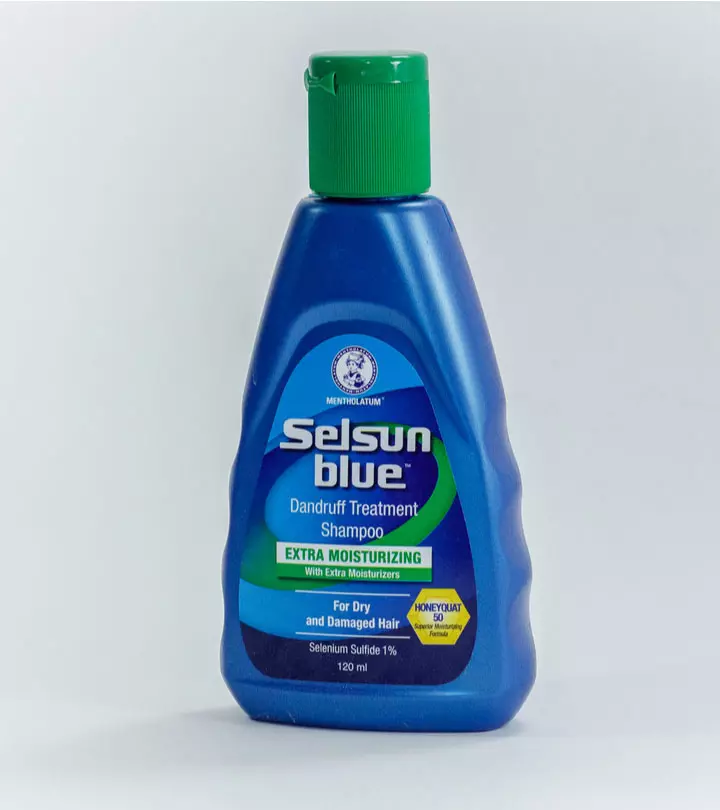
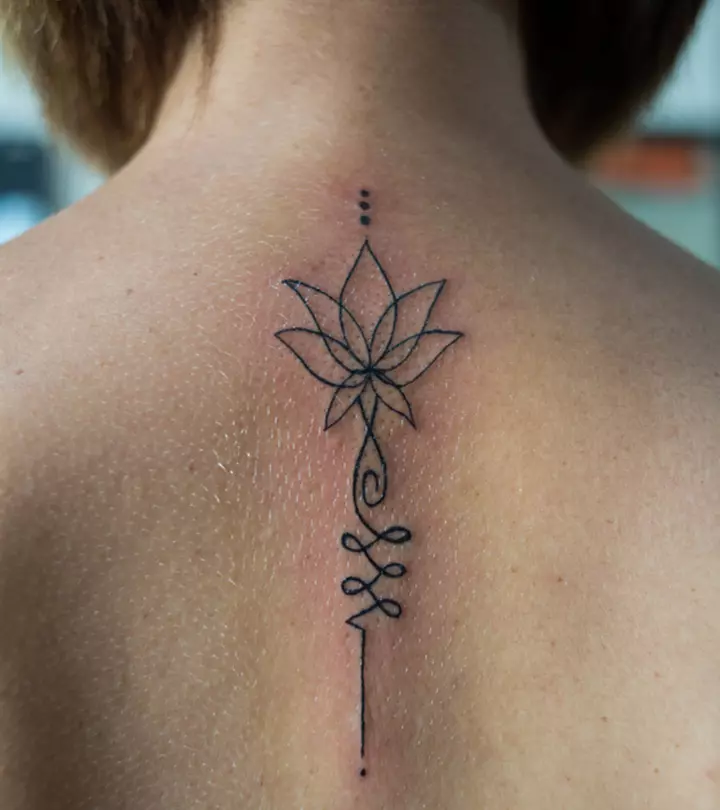
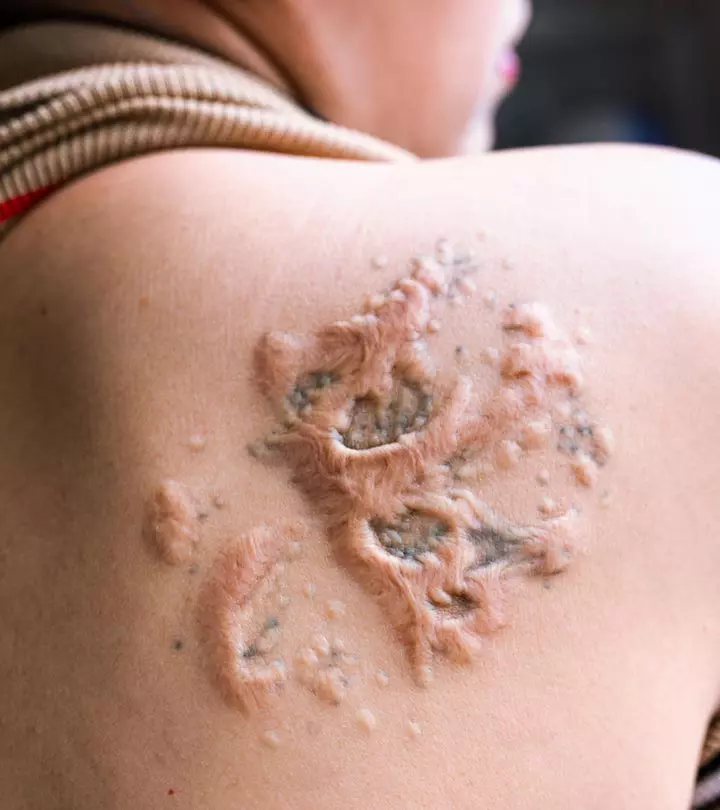


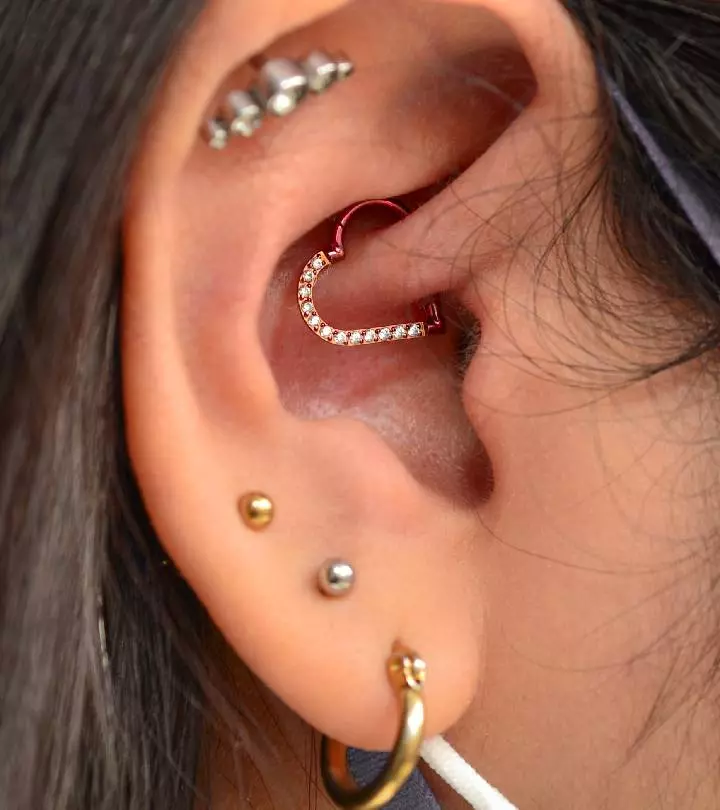
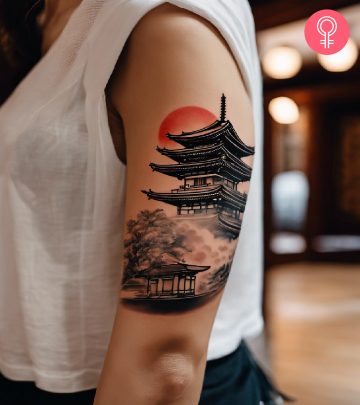






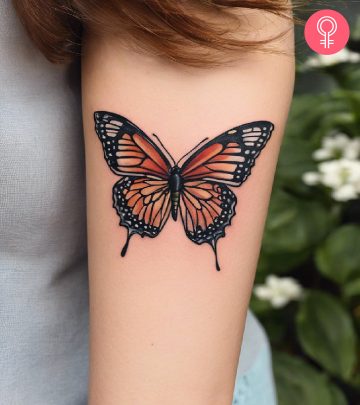
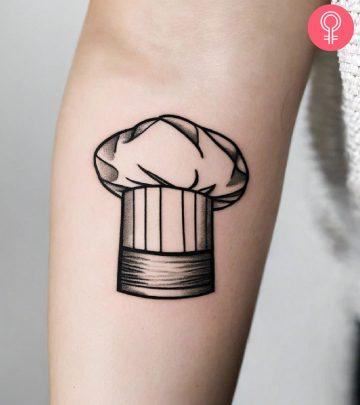
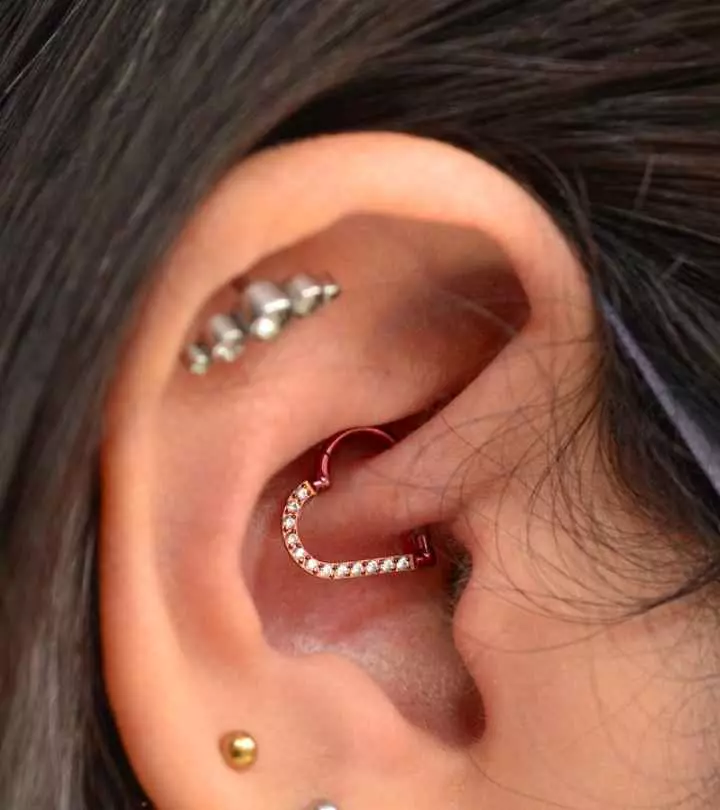

Community Experiences
Join the conversation and become a part of our empowering community! Share your stories, experiences, and insights to connect with other beauty, lifestyle, and health enthusiasts.